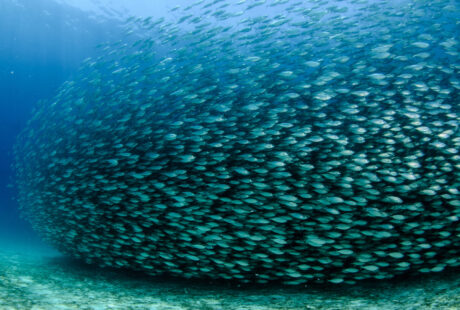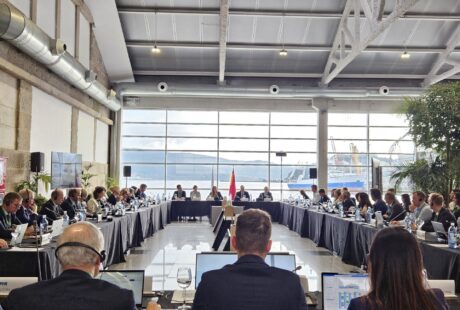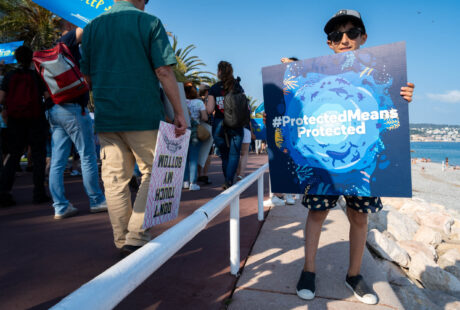By embracing a more forward-thinking approach based on environmental and social considerations for the allocation of fishing quotas, the European Commission and Member States can safeguard fish populations while supporting the livelihoods of responsible fishers.
Brussels – A new report published today by Seas At Risk and its members, Ecologistas en Acción, Sciaena and Bund (1), showcases ten alternative practices pioneered by national governments in the allocation of fishing opportunities based on a more sustainable and equitable distribution of fishing rights and quotas (2). If upscaled, replicated and tailored to national realities, these examples can lead to sustainable fishing practices, the prevention of overfishing and the enhancement of fishers’ wellbeing.
The report focuses on the allocation of fishing opportunities based on environmental or social considerations, in line with what is encouraged under the current rules, but rarely implemented by Member States(3). The environmental criteria adopted by Member States span reduced carbon emissions, use of low impact fishing equipment, and decreased incidental catches. The social criteria include support to small-scale and artisanal fishers, fishers living on remote islands, and having children with disabilities. It also addresses the sector’s worker deficit by fostering the integration of new and young fishers.
The examples highlighted in the report remain rare cases across the EU. In fact, the current allocation of fishing opportunities is almost solely based on historic criteria – those fisheries who have historically caught certain amounts of fish in the past, are often granted similar quotas also in subsequent years. While this allocation practices help maintain stability, allowing fishers to make long-term plans and reduce uncertainties, it also perpetuates social disparities. This reinforces the influence of a selected group of powerful industrial fisheries using harmful fishing practices, at the expense of smaller-scale and artisanal fishers and fragile marine ecosystems. This paradox stresses the urgent need for new measures that prioritise fairness, sustainability, and the preservation of the ocean for future generations.
In the coming months, the European Commission will release guidance to encourage Member States to use the environmental and social options offered in existing rules when it comes to the allocation of fishing quotas at national level. Ahead of this release, NGOs show that promoting sustainable fishing practices and the wellbeing of fishers is possible.
Bruno Nicostrate, Senior Fisheries Policy Officer at Seas At Risk said: “We stand at a critical juncture where the future of our ocean and fishing communities hangs in the balance. The European Commission must lead EU countries to shift towards a more sustainable and equitable distribution of fishing opportunities to contribute to a healthy ocean for us and future generations. It’s time to rethink fisheries!”
Remi Cossetti, Fisheries Policy Officer at Seas At Risk said: “To tackle the escalating ecological and social crises that afflict EU waters and the fishing sector, national governments can learn from alternative fair and eco-friendly fishing practices that are already happening across the EU. Replicating, upscaling and tailoring these practices to national realities is key to unlocking a sustainable future for fishers, while safeguarding marine ecosystems.”
NOTES TO EDITOR
(1) Seas At Risk members involved in this publication are Sciaena, based in Portugal; BUND, based in Germany, and Ecologistas en Acción, based in Spain.
(2) The report is titled “Allocating fishing opportunities with environmental, social and economic criteria in mind. Examples from EU member states”. Summary of the examples: “Ten examples from EU Member States pioneering fair and eco-friendly allocation of fishing opportunities“.
(3) Article 17 of the Common Fisheries Policy asks EU Member States to use transparent and objective criteria, including those of an environmental, social and economic nature, for the distribution of fishing quotas within Member States.
Posted on: 19 February 2024



